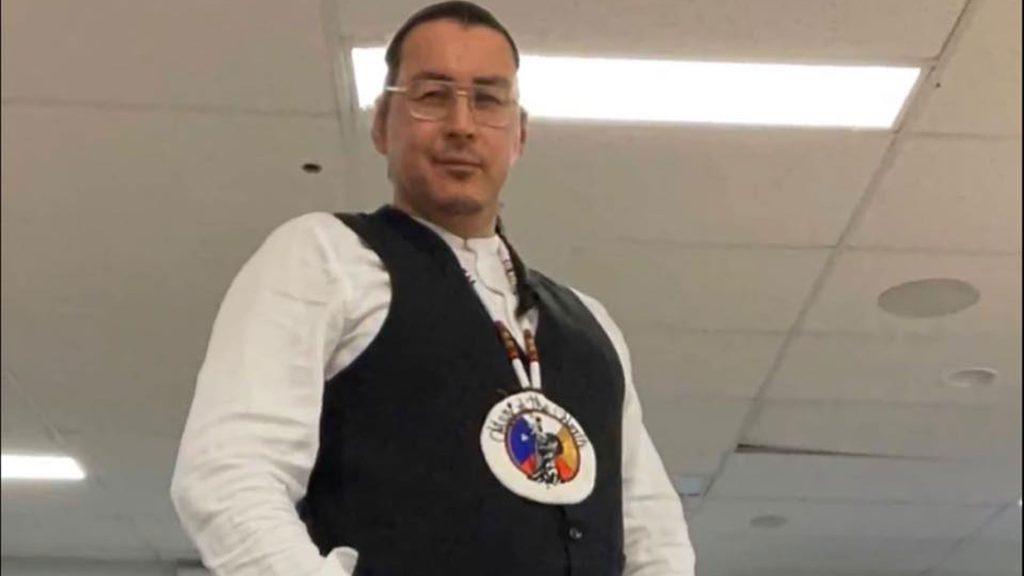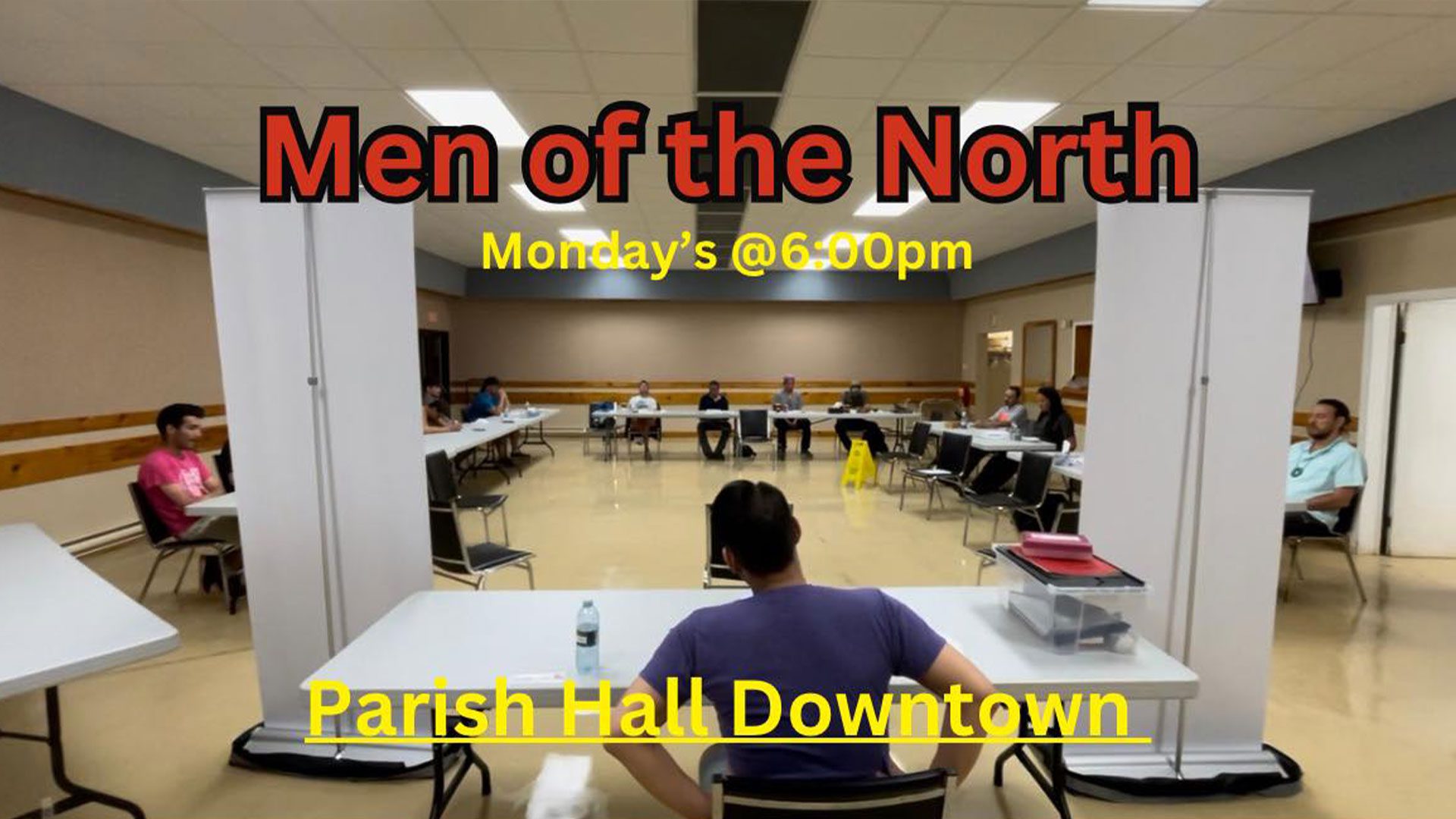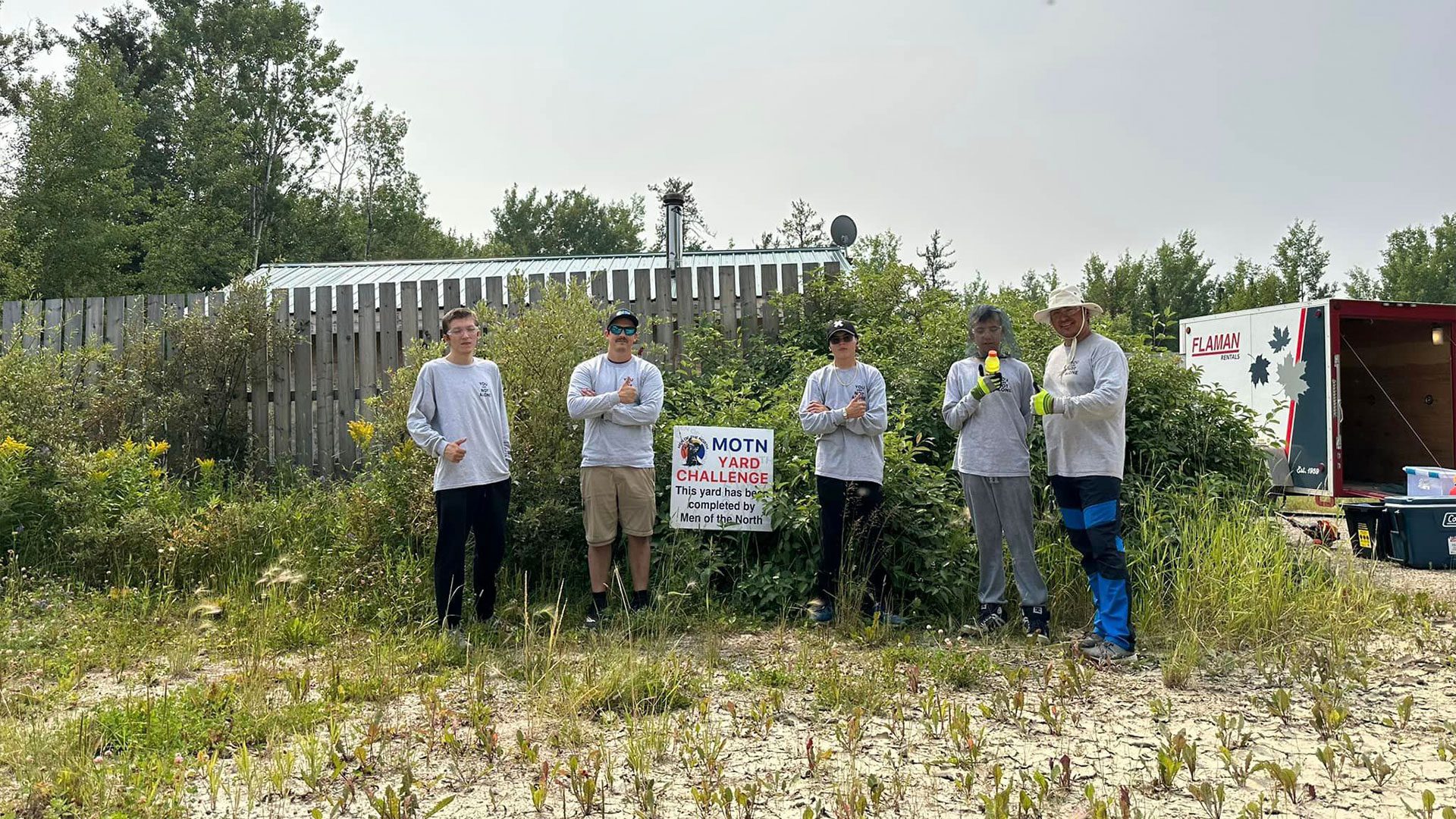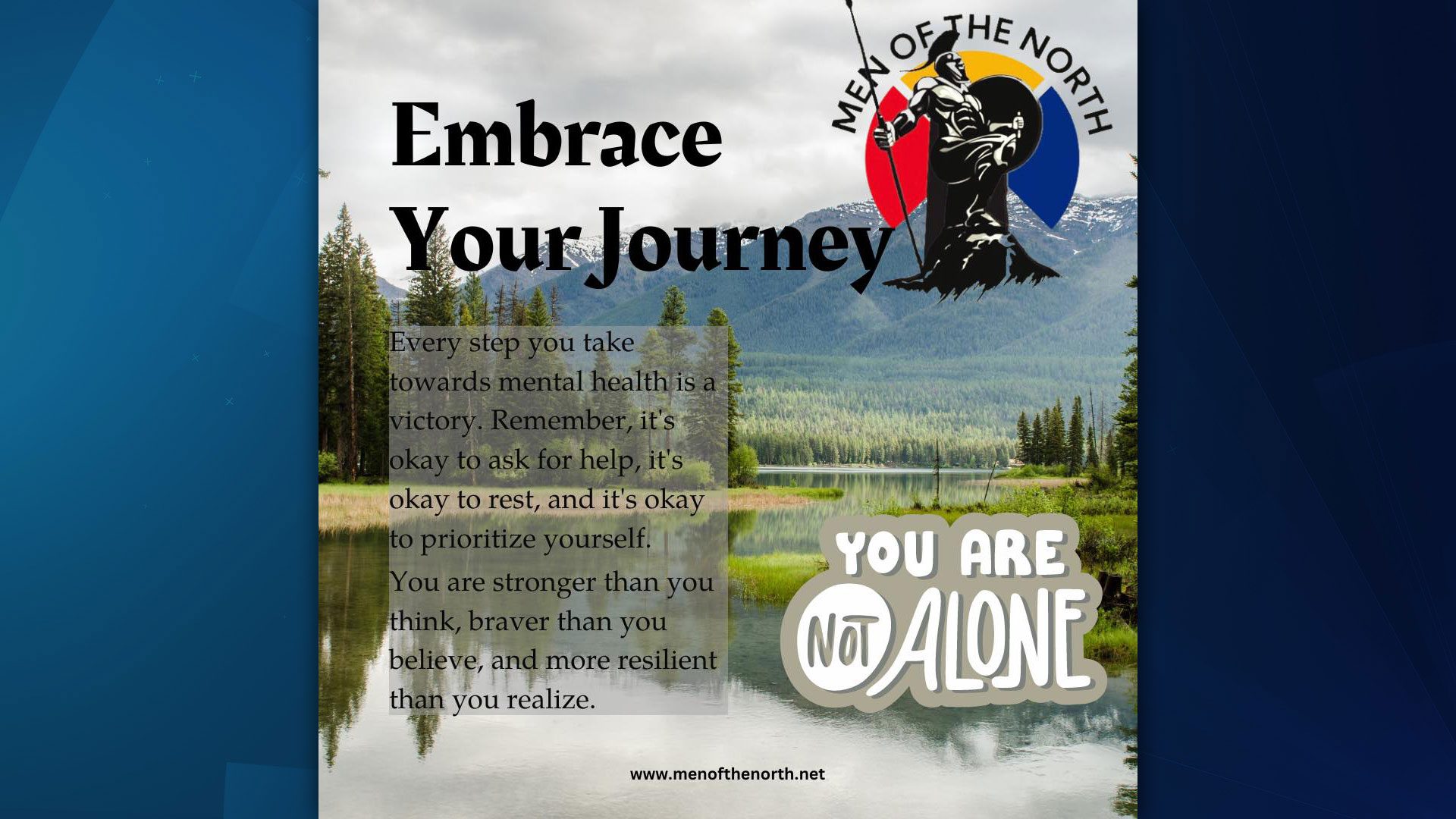
Christopher Merasty developed a mental health program for men in northern Saskatchewan. Photo: Facebook
If you or someone you know is thinking about suicide, call Talk Suicide Canada at 1-833-456-4566. Support is available 24 hours a day, 7 days a week.
Build the skills and better self-esteem will follow.
That’s the goal of Men of the North – a male support group in northern Saskatchewan.
“We help men find their purpose in life,” said founder Christopher Merasty, a First Nations man from LaRonge, Sask.
Watch: Group Men of the North welcomes next generation
Merasty, 41, developed the program that began in January 2020 after a series of men in the region died by suicide.
He says one of those deaths could have been his.
“I saw a need for direction…for men who’d served jail or prison time, no longer had a job or drivers’ licence, and were being called out on their substance abuse,” he said.
“The future looked bleak. I would have been just another statistic.”

Data from the Saskatchewan chapter of the Canadian Mental Health Association bears this out.
It shows Saskatchewan has the highest rate of death by suicide in Canada (after Nunavut), led by men in their 40s and 50s.
It says Indigenous men die at three times the rate of non-Indigenous men.
Also, the rate of hospitalization for self-harm was four times higher for First Nations men, according to a 2022 study prepared by the Federation of Sovereign Indigenous Nations, which represents 74 First Nations in Saskatchewan.
Overall, the National Institutes of Health says First Nations’ people are dying by suicide at a rate 4.3 four times higher than non-First Nations people in Saskatchewan.
“Our society doesn’t encourage men to talk about their problems,” said Merasty, “and they’ll use drugs and alcohol to deal with their emotions, their anger …
“When that doesn’t work … (and) they get into legal or marital trouble, (they can) consider dying by suicide.”

Merasty, who runs Men of the North as a volunteer while working full-time in a mine, is not a licensed mental health professional. But he wants to make change.
“I decided to put together a program that will help mitigate a lot of the suicides, a lot of the domestic violence, a lot of the incarceration rates, (and the) alcohol (abuse), by providing additional resources and hands-on vocational training for men and young men in the community,” he said.
“Our mandate is serving men to try to increase their integrity. We have lawyers, judges, doctors, teachers – what have you – (participating) and we come into a group setting. Usually we have 15 to 18 men each week joining us.”
Merasty says the program is open to both Indigenous and non-Indigenous men.
“It’s for all men … we try to involve many different backgrounds because I think that adds in a more broader perspective about different cultures, different dynamics, different beliefs – definitely builds a lot more bridges.”
Along with learning about anxiety and depression, Merasty said men discuss coping skills to deal with stress and anger. They can obtain training certification in counselling, group leadership and youth mentorship, he added, which improves their future job prospects, driving eligibility, and access to housing and their children.
Ronald Mitsuing, a former chief of Makwa Sahgaiehcan First Nation in Loon Lake, likes what he hears.
“Those ideas sound like something our men can use,” Mitsuing said in a telephone interview Thursday.
Mitsuing lost his sister and a close friend to suicide in 2021. As chief at the time, he called for immediate action to address the “suicide crisis” gripping his community and others in northern Saskatchewan.
Merasty’s program may be the answer, he noted.

Merasty said the program helps fill the gaps that exist in job preparedness, mental health services and living a sober life.
“I found it very challenging growing up in northern Saskatchewan, trying to be better in my life, and not having the resources, supports, tools in our communities,” he said. “I think that’s what really struck up the program itself.
“I didn’t have friends there that I support and rely on that do not drink.”
Men of the North provides traditional land-based teachings such as sweat lodge ceremonies, Sun Dance ceremonies, walks in nature and medicine picking, Merasty added.
“We’re not only being a mental health group, but (we’re) also providing areas of opportunity for men to connect with other men.”
Mentoring
This summer, 11 participants are mentoring up to 30 youth as part of a free yard service program for elders, single parents and people with disabilities in LaRonge, Saskatoon, Prince Albert and Buffalo Narrows.
Merasty said the mentors range in age from 18 to 41, and the youth from 13 to 25.
“I challenged the boys who are being mentored through the group to cut 60 lawns this summer,” Mersaty said. “So far they’re on their way to collecting the reward, which is a weekend trip to Regina that ends with going to a football game.”
Merasty says he operates the program on grants and donations although he’s hoping to secure permanent funding. He’s also working on expanding the program’s teachings to inmates in jails and penitentiaries, he added.
“I want to provide men and boys (with) the ability to reach out and ask for help and speak their truth,” he said in a telephone interview.
“It is very beneficial for them to learn to communicate through various challenges that they might be facing.”










